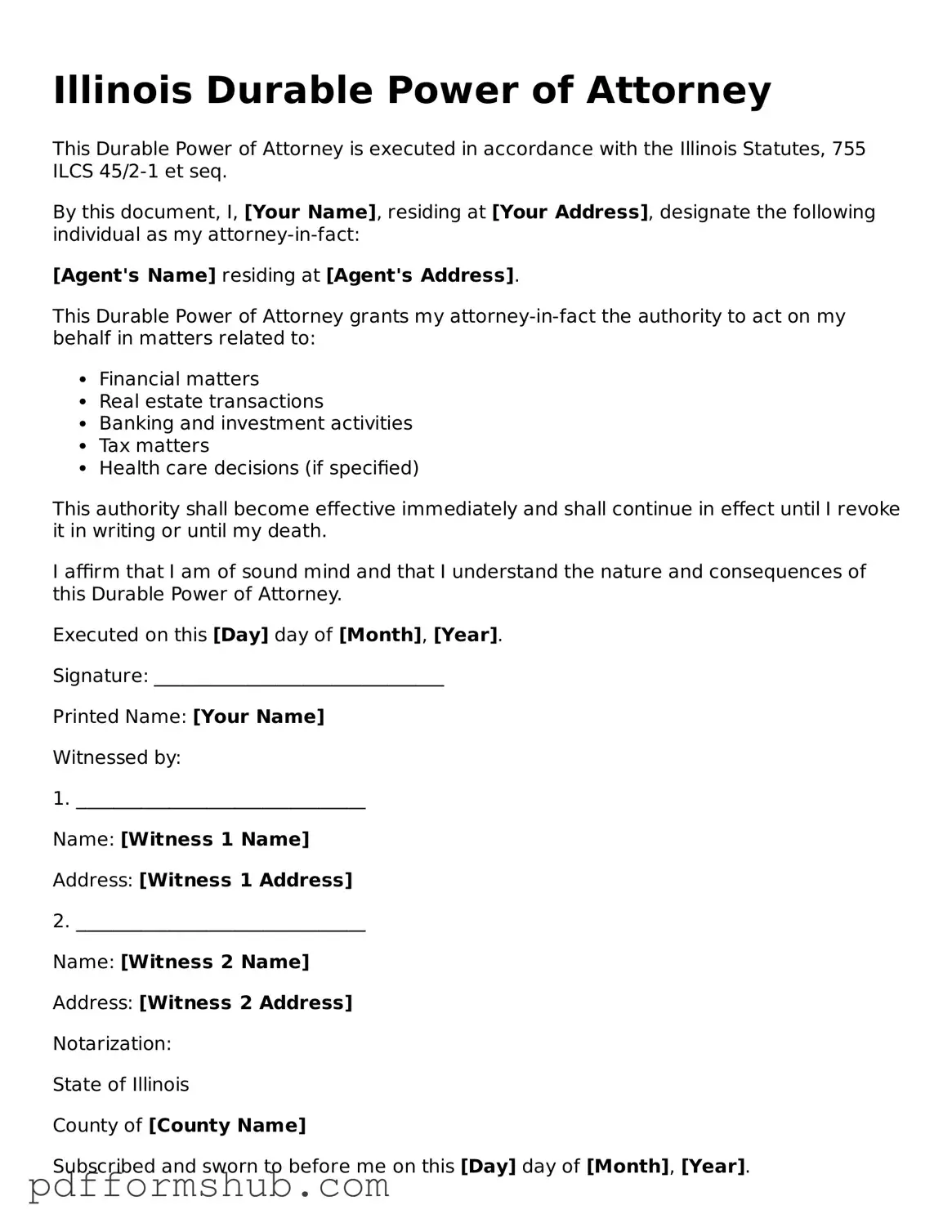Attorney-Verified Durable Power of Attorney Form for Illinois State
The Illinois Durable Power of Attorney form is a legal document that allows an individual to designate someone else to make decisions on their behalf regarding financial and medical matters. This form remains effective even if the individual becomes incapacitated, ensuring that their wishes are honored. Understanding this form is crucial for anyone looking to secure their future and protect their interests.
To take the next step in securing your rights, fill out the form by clicking the button below.
Customize Form

Attorney-Verified Durable Power of Attorney Form for Illinois State
Customize Form

Customize Form
or
Free PDF Form
Short deadline? Complete this form now
Complete Durable Power of Attorney online without printing hassles.